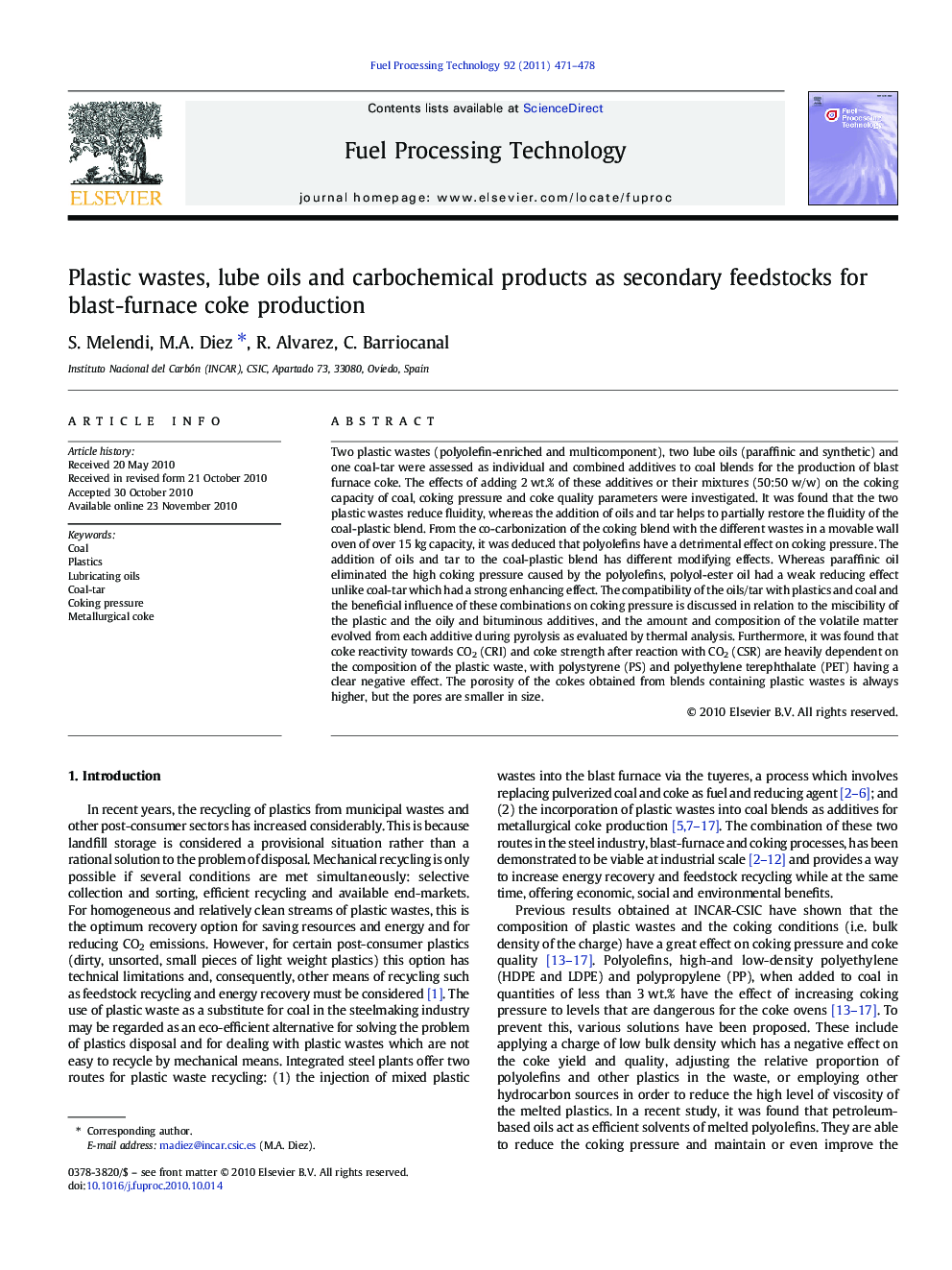| Article ID | Journal | Published Year | Pages | File Type |
|---|---|---|---|---|
| 10274758 | Fuel Processing Technology | 2011 | 8 Pages |
Abstract
Two plastic wastes (polyolefin-enriched and multicomponent), two lube oils (paraffinic and synthetic) and one coal-tar were assessed as individual and combined additives to coal blends for the production of blast furnace coke. The effects of adding 2Â wt.% of these additives or their mixtures (50:50 w/w) on the coking capacity of coal, coking pressure and coke quality parameters were investigated. It was found that the two plastic wastes reduce fluidity, whereas the addition of oils and tar helps to partially restore the fluidity of the coal-plastic blend. From the co-carbonization of the coking blend with the different wastes in a movable wall oven of over 15Â kg capacity, it was deduced that polyolefins have a detrimental effect on coking pressure. The addition of oils and tar to the coal-plastic blend has different modifying effects. Whereas paraffinic oil eliminated the high coking pressure caused by the polyolefins, polyol-ester oil had a weak reducing effect unlike coal-tar which had a strong enhancing effect. The compatibility of the oils/tar with plastics and coal and the beneficial influence of these combinations on coking pressure is discussed in relation to the miscibility of the plastic and the oily and bituminous additives, and the amount and composition of the volatile matter evolved from each additive during pyrolysis as evaluated by thermal analysis. Furthermore, it was found that coke reactivity towards CO2 (CRI) and coke strength after reaction with CO2 (CSR) are heavily dependent on the composition of the plastic waste, with polystyrene (PS) and polyethylene terephthalate (PET) having a clear negative effect. The porosity of the cokes obtained from blends containing plastic wastes is always higher, but the pores are smaller in size.
Related Topics
Physical Sciences and Engineering
Chemical Engineering
Chemical Engineering (General)
Authors
S. Melendi, M.A. Diez, R. Alvarez, C. Barriocanal,
